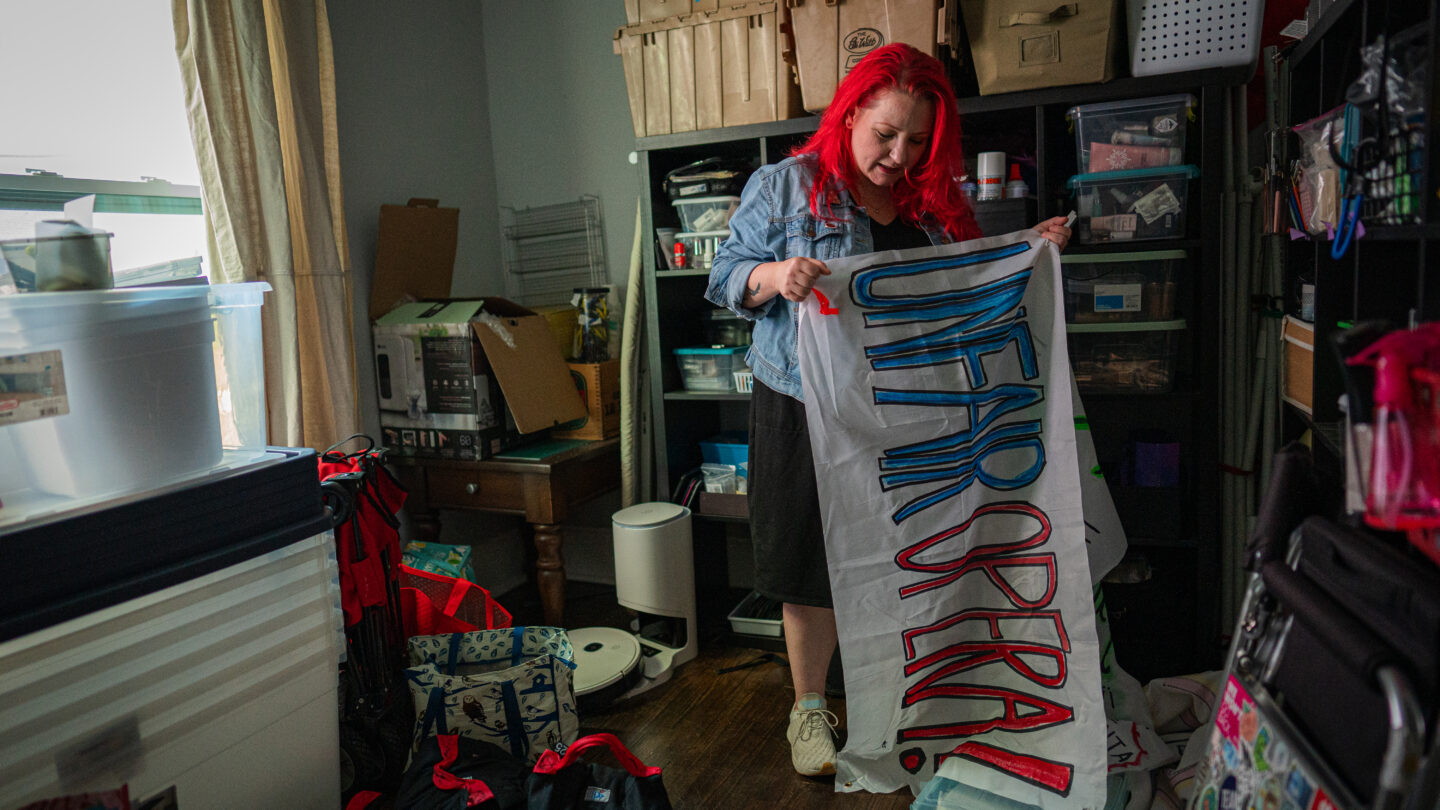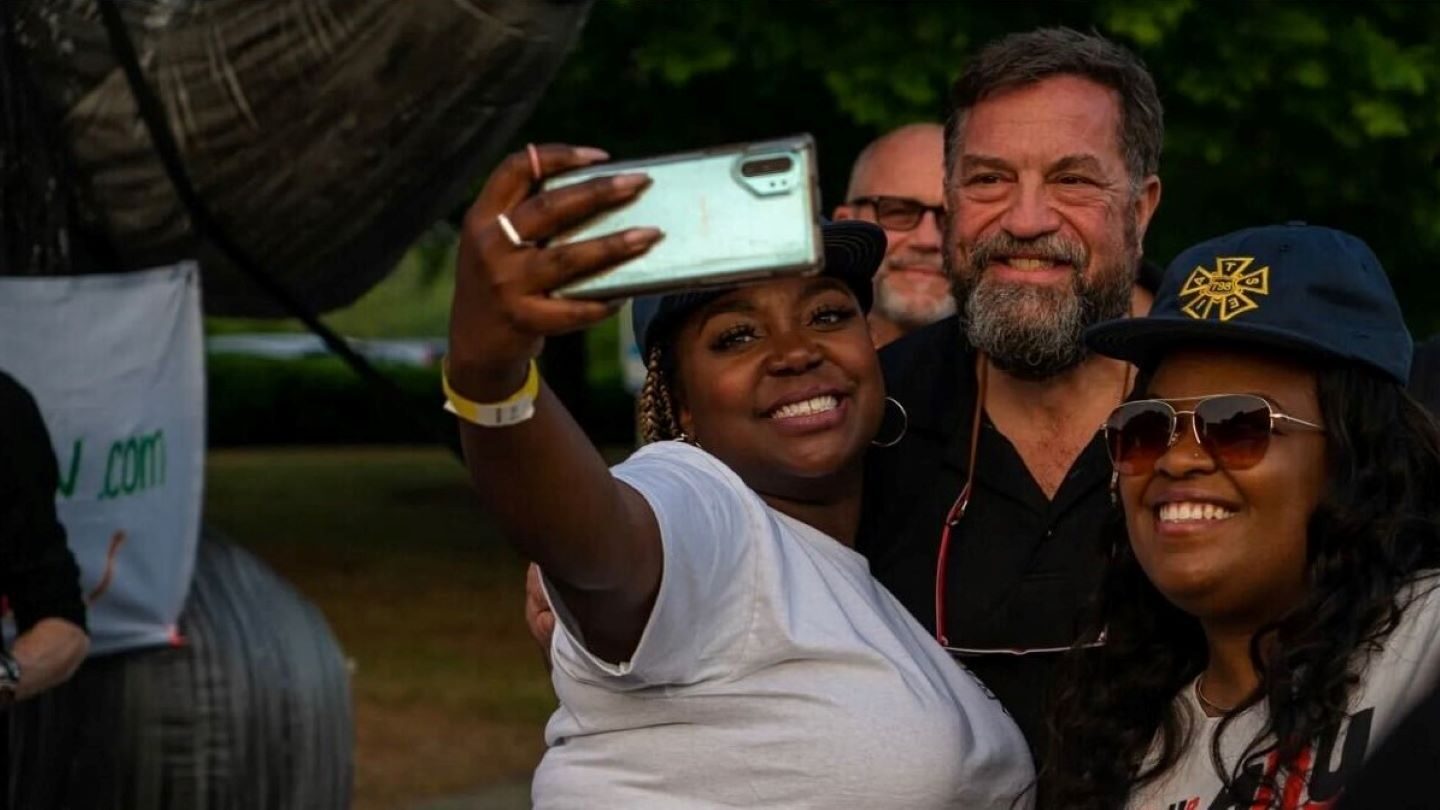Brie Hall stares into a mirror at her friend’s salon and delicately paints her trademark stripe on her lips before she sits for a portrait.
A make-up artist and member of Make-Up Artists and Hair Stylists IATSE (International Alliance of Theatrical Stage Employees) Local 798 , Hall has risen within the past few years as a leader in the unionizing effort for her department at The Atlanta Opera.
A theater kid in high school, Hall’s relationship with the Atlanta Opera began in 2015. She has a saying that she holds dear, “Film feeds the bank account, but theater feeds the soul.”
Hall’s relationship with the company grew strong enough to where they created a position for her, naming Hall the Hair and Make-Up Department Head, with one of her primary responsibilities to help recruit talented stylists with the skills needed for each specific show during the season.
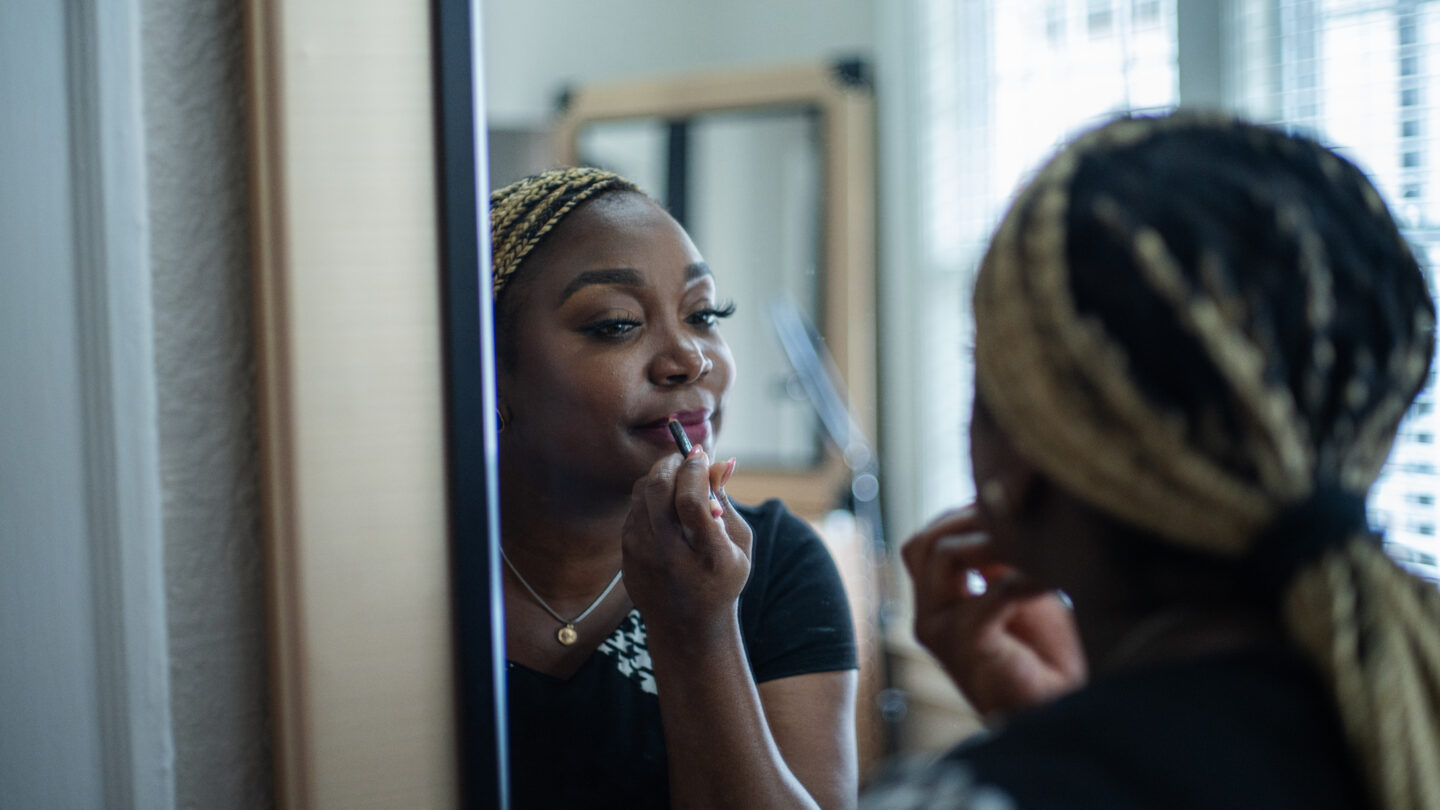
Most make-up artists in the entertainment industry shuffle between different projects or jobs; some weeks, they’re on a movie or TV set; others, they may be doing make-up for a fashion photoshoot or ad campaign.
Despite the instability of the entertainment industry as a whole, theater productions are always a coveted option for a gig.
Looking back, Hall realizes now that her crusade started years before a petition was ever filed. Her determination only seemed to grow as she began to learn more about how the industry treats artists like her.
“I’m definitely a person that fights for fairness in all aspects anyway,” she said. “And it was like … why are we not making as much as I think that we should be making as professional artists.”

The artist started by asking questions. She looked for comparisons on what other opera houses were paying. She asked management for help finding solutions to make their job more competitive, sustainable, and fair.
“And it wasn’t that we were being treated poorly. It just wasn’t fair. We weren’t getting what everyone else was getting. And I think that we should because our job is just as important.”
Then COVID-19 happened. Productions shut down, and live performances stopped. Classified as independent contractors, the stylists don’t receive healthcare benefits from the Opera and couldn’t qualify for unemployment benefits while productions and live shows shut down during the quarantine.
Eventually, the show went on.
In September 2020, the Atlanta Opera was the first opera house to do live theatre again, outside in large tents but still a full production. Knowing the risk, Hall returned to work, still determined to see that she and her colleagues were fairly treated.

Even with PPE and COVID safety regulations, Hall and her fellow hair and makeup artists were putting themselves at risk, working near unmasked singers, usually face to face, when applying their makeup and styling their hair or wigs.
“There was no protection for us. So if we contracted or contacted someone with COVID or became positive ourselves, there was no recourse,” Hall says while recalling what it was like being misclassified as an independent contractor.
“There was no unemployment insurance. We would just be back out of work. And it wasn’t fair, especially because we were the ones doing the hardest or most dangerous work, being exposed to people with no mask.”
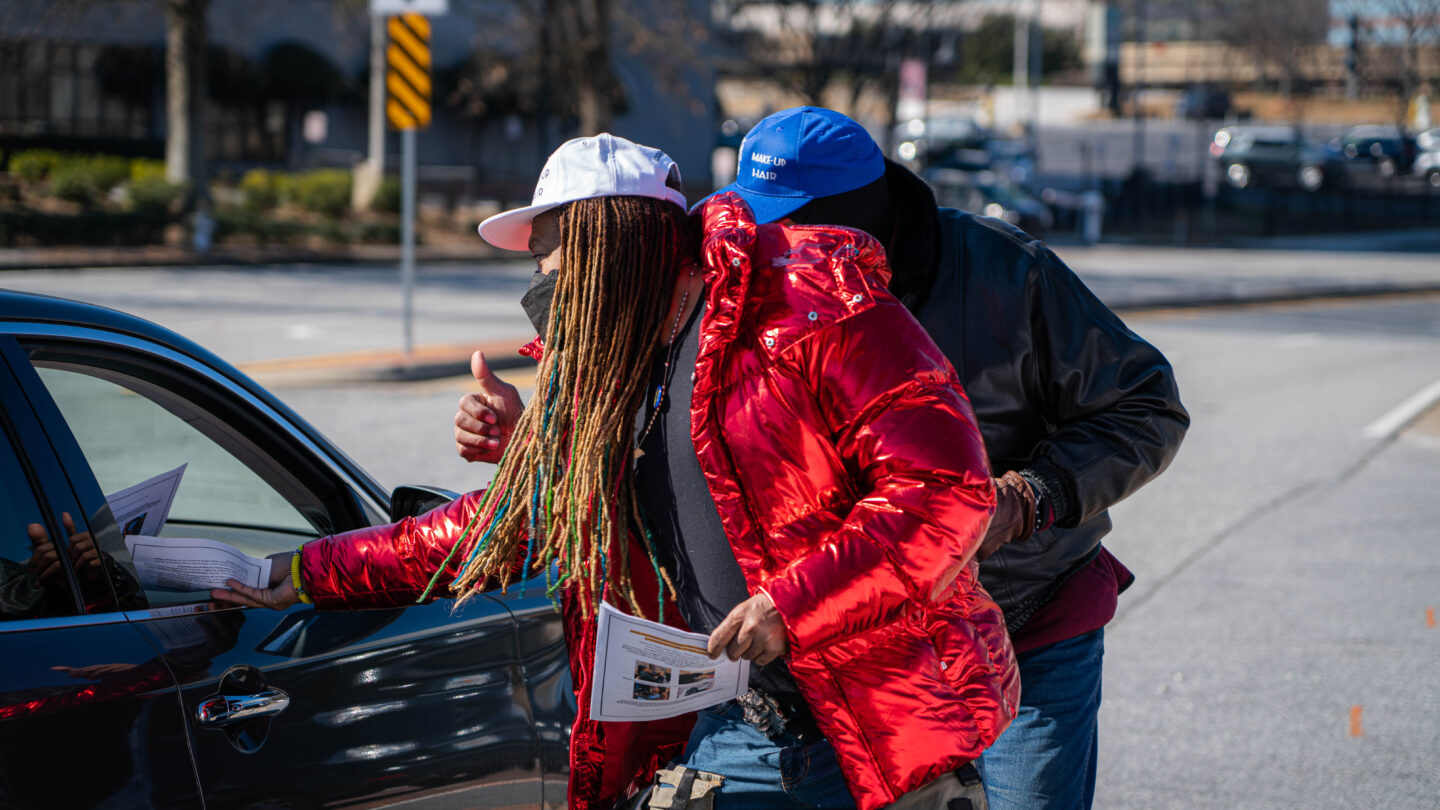
Hall and her crew knew something needed to change if they wanted to keep working for the opera. They had noticed that the treatment of other departments with union contracts differed from their own.
Hall led the organizing effort and contacted her Union’s Business Agent, Samantha Reese, and IATSE Local 798 President Angela L. Johnson, who helped launch the campaign and collected signed authorization cards from workers.
“We just want what the people that we’re working alongside are already receiving. I don’t think it’s a big ask,” Hall explained. “And everyone was like, Yeah, I agree. So let’s just show up and keep doing what we have been doing.”
In April 2021, Local 798 first requested voluntary recognition from the Atlanta Opera on behalf of the hair and make-up artists. When they received no response, they petitioned for an election to decide whether they would unionize with IATSE Local 798.
Believing that their ask was reasonable, they expected little to no resistance, especially since other departments at the opera were already unionized.
Little did they know, their ask would influence a larger discussion on workers’ rights and change how the NLRB defines an employee and independent contractor.
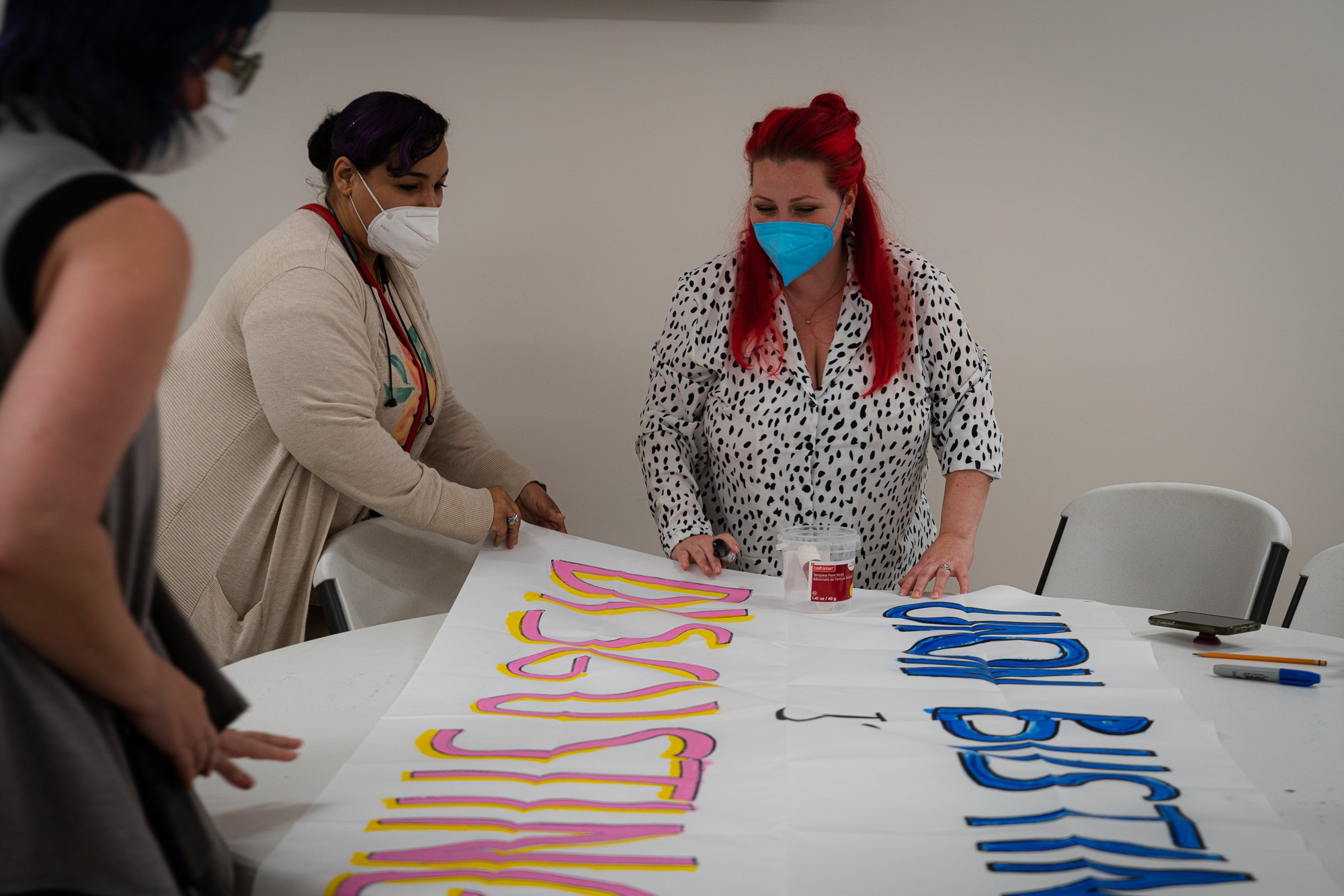
Even though other departments had union contracts, when the hair and make-up artists filed for their election, the Atlanta Opera filed an appeal, arguing that the stylists weren’t employees but independent contractors and did not qualify for a union election.
The NLRB eventually sided with the artists and ordered the election to take place in June 2021. In July, the Opera appealed to the board again and asked for a review of the case.
The ballots became impounded, and the stylists were left in limbo while the board worked through their caseload before addressing the unique circumstances of the Atlanta Opera case.
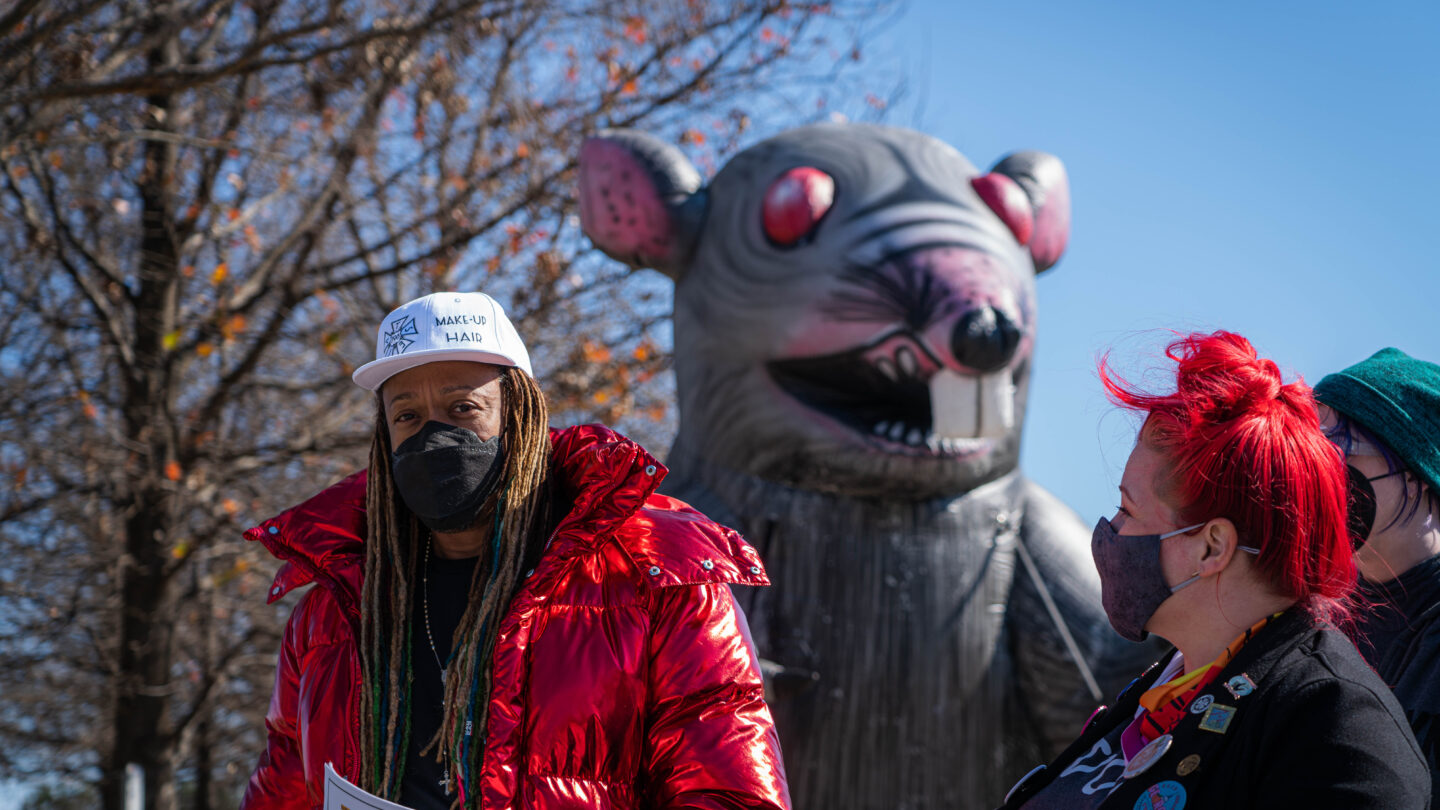
Months passed, and in December, the NLRB invited briefs regarding the Independent Contractor Standard as part of the ongoing legal battle in The Atlanta Opera, Inc. 371 NLRB No. 45 (2021).
Nearly 50 amicus briefs were filed over the following months from multiple organizations on both sides arguing over how to define an independent contractor.
While waiting on a ruling, the stylists found new work. They declined offers to return to the opera company for reduced wages, more challenging working conditions and time constraints that only existed after their unionizing efforts.
The Atlanta Opera hired out-of-state stylists while those local artists bannered outside, standing tall with Scabby the Rat handing out flyers to attendees as they pulled into the Cobb Energy Arena or Pullman Yards, two of the venues that hosted the Atlanta Opera during their 2021, 2022 and 2023 seasons.
Hall and her colleague, Jennifer Bennett, expressed a desire to return to the opera and spoke about how special it is to work on live performances. It’s why they continued their advocacy for workers’ rights at the Atlanta Opera even while working other gigs.
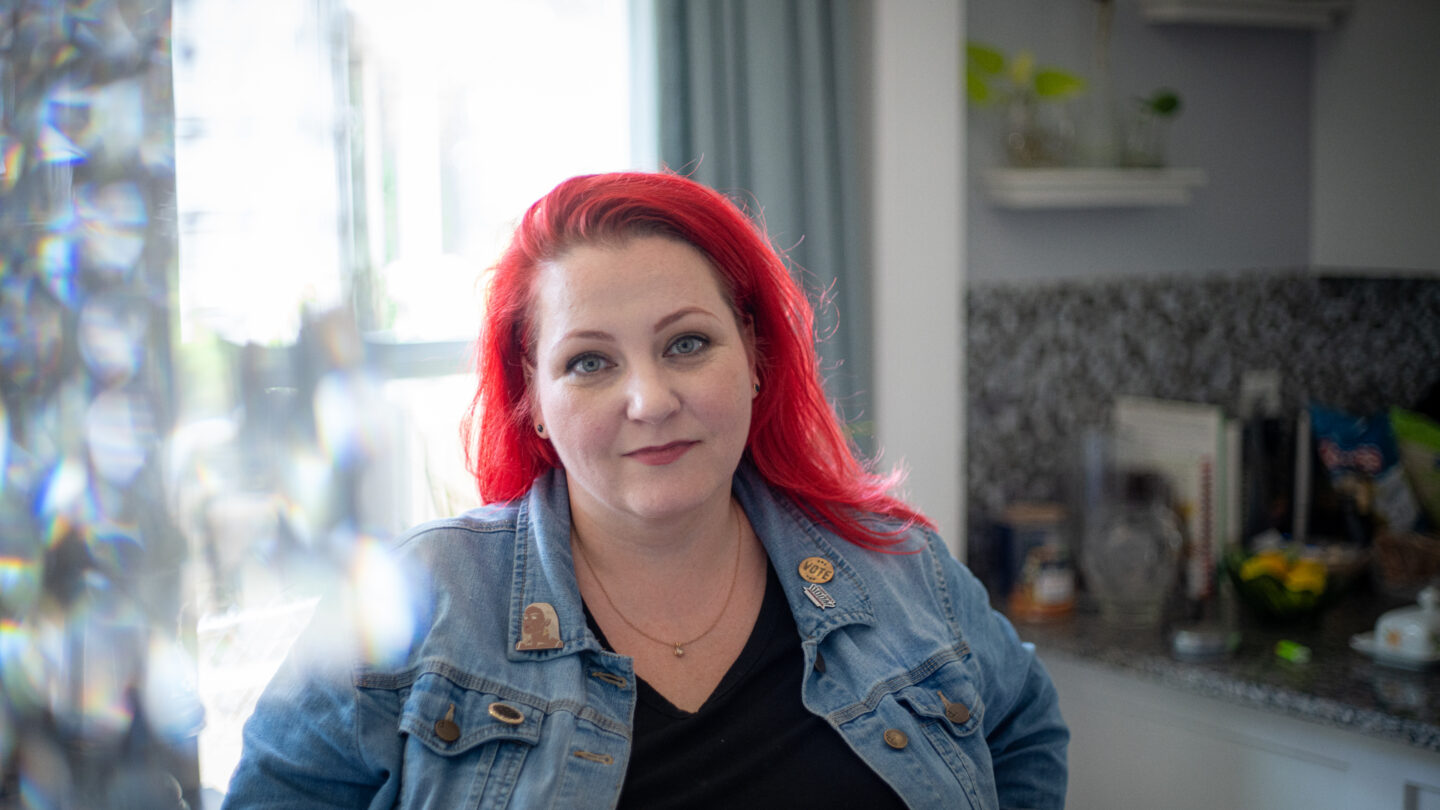
For the past few years, Bennett has mainly worked on movie sets. But, in the wake of the current SAG-AFTRA and WGA strikes, you can usually see her bright red hair in the crowd at a rally or on a picket line on any given day.
She loves the industry and what she does for a living, but doing makeup on location in the Georgia weather is rough compared to the comfort of a theatre gig.
“You know, it’s a great gig to get if you can get it,” she notes, explaining the appeal. “In the Atlanta Opera, it’s inside, air-conditioned, you’re working with a fabulous group of opera singers. And wouldn’t it be great if you could come back from multiple shows because you had health care and you had contributions to your retirement? And you didn’t have to go get a side job to be able to work at the Atlanta Opera?”
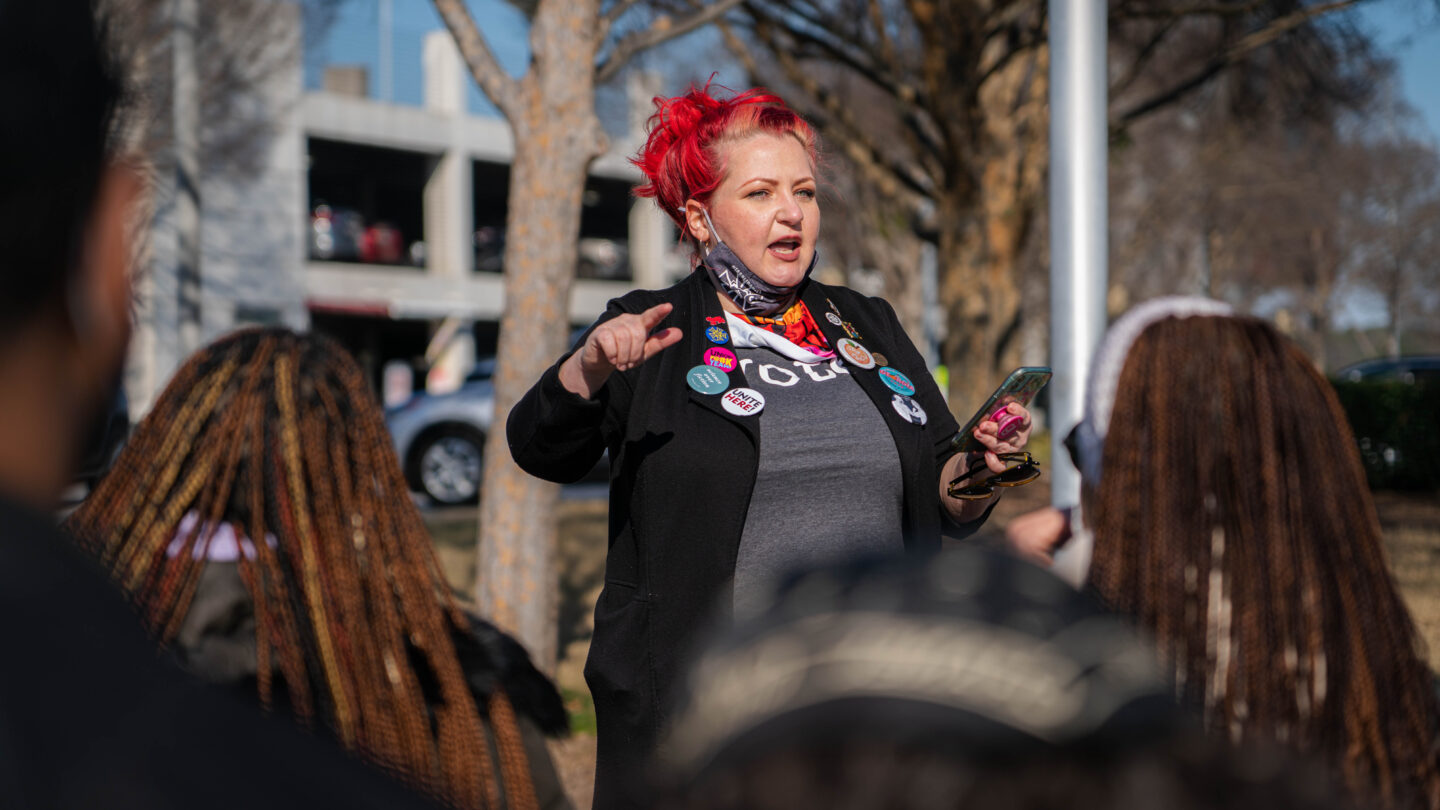
Bennett is a helper who prefers to celebrate her colleagues’ work and is eager to champion causes that can benefit the greater good in her community. When her union started taking up the cause of the artists at the Atlanta Opera, Bennett was one of the most dedicated members to help raise awareness.
Some weeks, it was just Bennett and her husband outside the Opera, holding a banner and raising awareness of the labor dispute that brewed backstage, determined to keep the momentum going while they awaited a final decision from the NLRB.
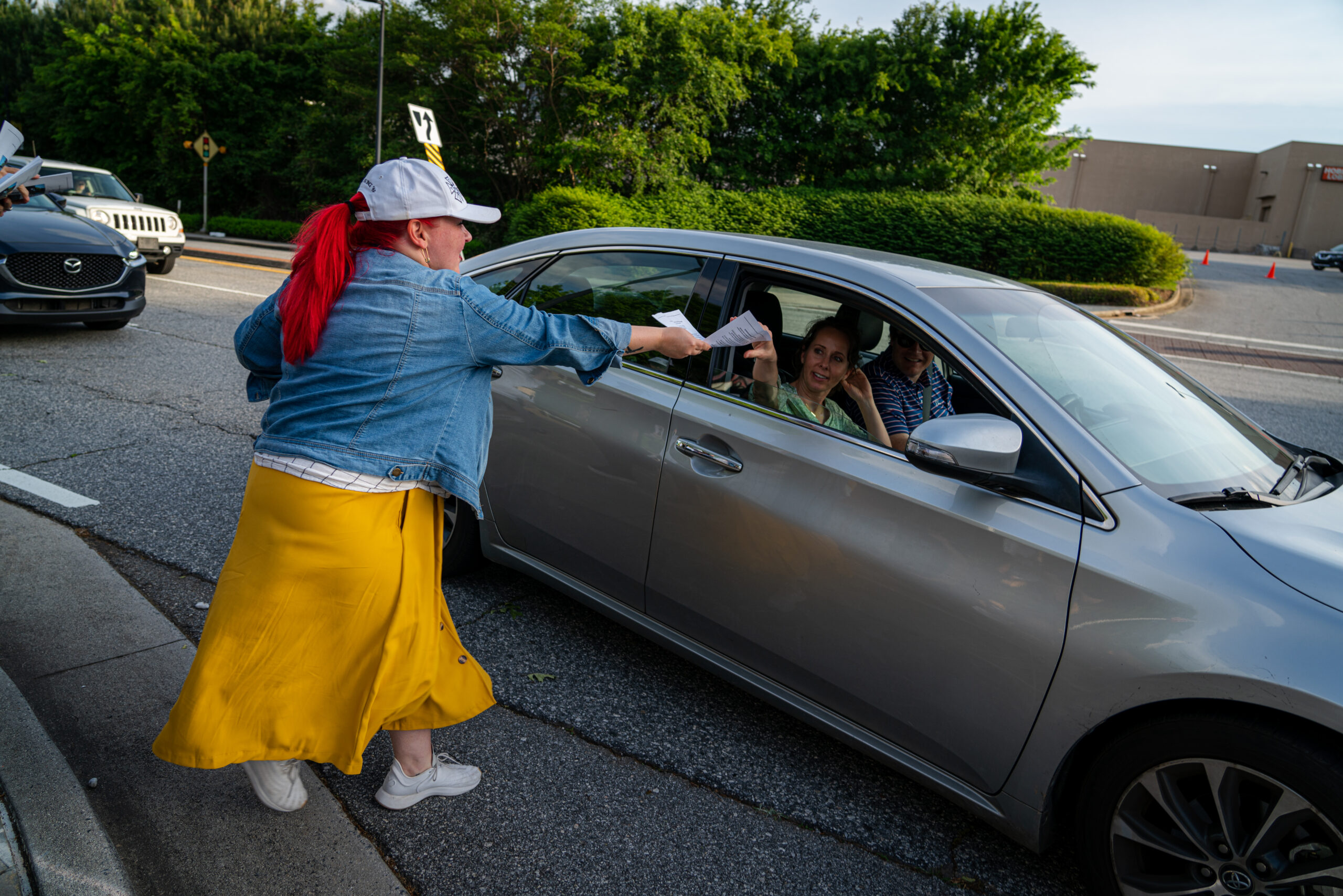
Hall, Bennett, and other local artists weren’t alone. Not only did they have backing from Local 798, but also from International President Matthew D. Loeb, who even showed up to support at a rally on April 30, 2022, along with other leaders from the union’s international level.
The International Alliance of Theatrical Stage Employees, or IATSE, represents 168,000 members belonging to 362 locals, and supported these workers with defense funds, legal advice and political and communication resources.
On March 10, 2023, nearly two years after filing the election petition and after the union petitioned to have the ballots counted, the NLRB ruled in favor of IATSE 798 and announced that votes would be counted.
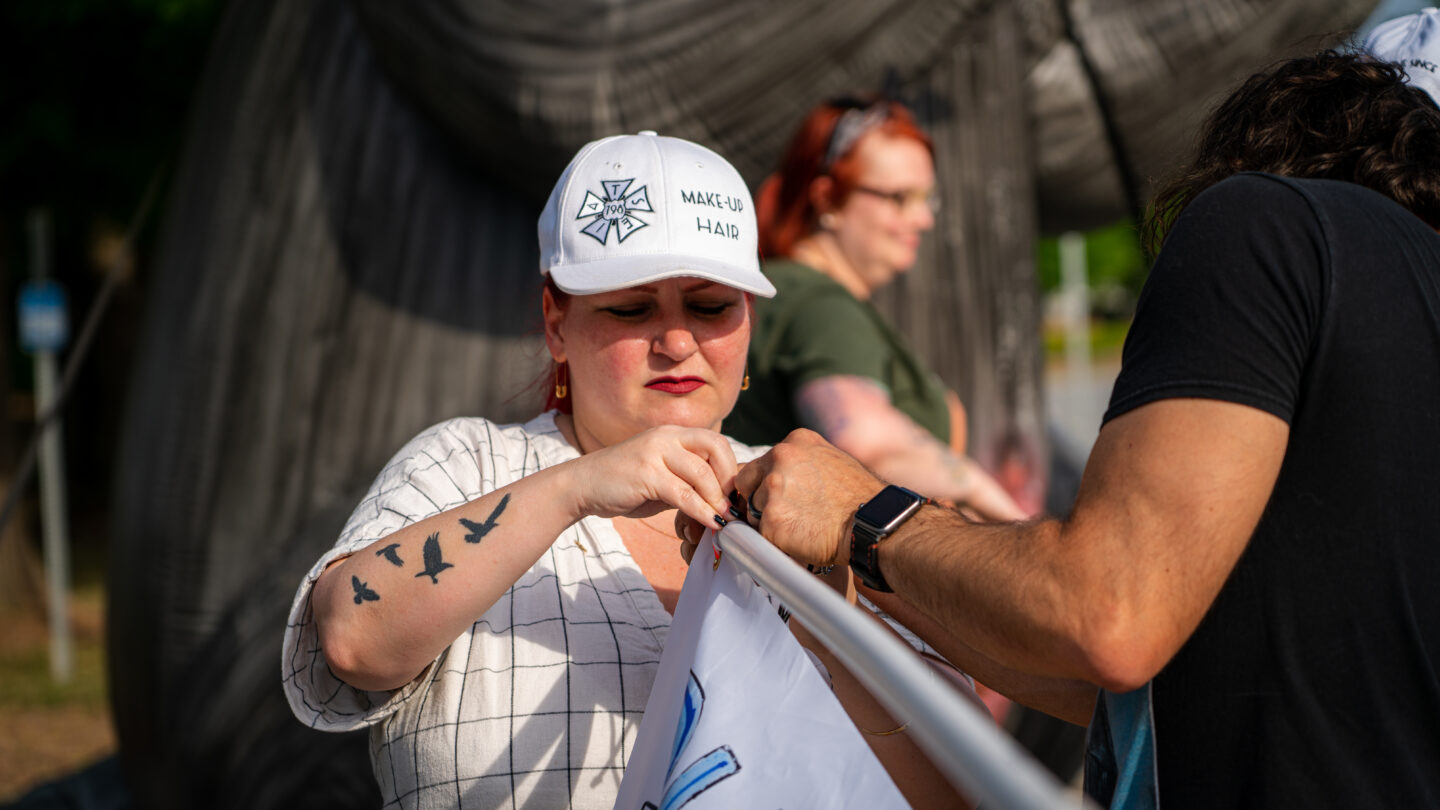
Eleven days later, the board unseals the ballots, revealing unanimous support for unionizing.
Seeing the result, The Atlanta Opera agreed to come to the bargaining table, and negotiations went on through May of 2023, where the two parties hammered out a Collective Bargaining Agreement between the hair and make-up workers and the Atlanta Opera that includes health and retirement benefits and work rule that include overtime and meal breaks.
The last decision on the case from the NLRB was on June 13, 2023, and they used the case to reset precedence, modifying the Independent Contractor Standard under the National Labor Relations Act. In the decision, the Board returned to the 2014 FedEx Home Delivery (FedEx II) standard for determining independent contractor status under the National Labor Relations Act and overruled SuperShuttle (2019).
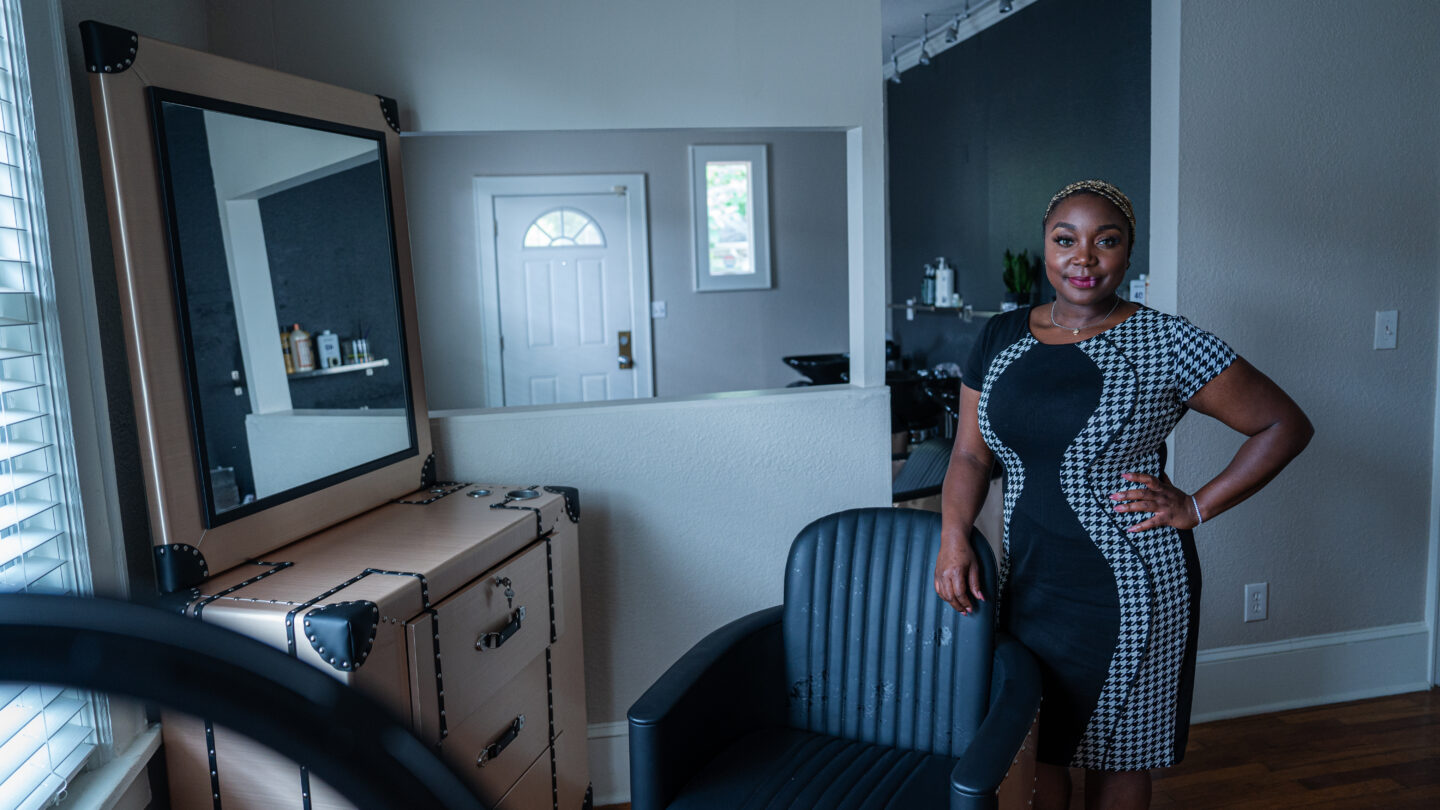
The SuperShuttle standard focused only on the entrepreneurial nature of a role. In contrast, the FedEx II standard considers more than just the entrepreneurial opportunity when defining who is and isn’t an independent contractor and looks at the method of pay, the relationship between the company and the worker, the skill required to perform the duty, and the location where the service is performed.
When the board used the expanded standard, the hair and makeup artists were clearly seen as employees rather than independent contractors because their work was supervised and guided by employees of the Opera, and they could only work on location.
“Applying this clear standard will ensure that workers who seek to organize or exercise their rights under the National Labor Relations Act are not improperly excluded from its protections,” said Chairman Lauren McFerran in a press release about the decision.
Today, after years of being improperly excluded, the hair and makeup workers of the Atlanta Opera have the right to organize and have a bargaining agreement with the Opera. Bennett’s banners are souvenirs of a well-fought fight, folded neatly on the shelf in her supply room.
